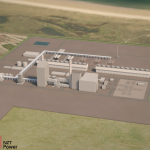Sector - Central Government
Retrofit priority for Infrastructure Bank

Ahead of the UK Infrastructure Bank’s first strategic plan, the Chancellor has written to John Flint, CEO of UKIB to outline the government’s policy priorities for the institution and to provide additional clarity on its mandate.
Green priorities
Priorities identified by Rishi Sunak include a focus on retrofit technology, designed to improve the green credentials of existing estates and cut carbon emissions.
“The UK Infrastructure Bank will accelerate our ambitions for tackling climate change and levelling up, while creating new opportunities across the UK as part of our Plan for Jobs.” Rishi Sunak
The letter states: “In light of the recent circumstances, I’d encourage you to prioritise opportunities that align with the government’s renewed focus on energy security. Examples of relevant opportunities may
include helping to bring forward low carbon energy projects that accelerate the UK’s transition to clean energy and improve the energy efficiency of buildings and homes.”
FMB welcomes guidance
The Federation of Master Builders (FMB) has welcomed the move, seeing it as confirmation the government is serious about net zero.
Brian Berry, Chief Executive of the FMB said “The Chancellor’s letter to the UK Infrastructure Bank is a clear signal that the Government recognises the value of retrofit technologies to help decarbonise the UK’s existing housing stock. However, the current focus on heat technology needs to be expanded to include the need to insulate our 29 million homes most of which are leaky and energy inefficient. Wednesday’s Spring Budget is an opportunity for the Chancellor to bring forward clear fiscal measures to support a long term national retrofit strategy which needs to bring together fabric improvements, skills, and heating technology into one package.”
Berry continued: “The construction industry has been calling for a national retrofit strategy to incentivise energy efficient upgrades to our existing homes. Future plans to make our homes greener and more energy efficient must be long-term, so that consumers and builders alike have confidence in upgrade schemes. A national retrofit strategy would help lower energy bills for consumers, helping them out during the ongoing cost-of-living crises, and create an economic boost for small builders, stimulating local economies.”
The Infrastructure Bank was established by the government in 2021 with a mission to partner with both the private sector and local government to stimulate investment in infrastructure.
As the bank establishes itself, the strategic plan is beginning to emerge. With £22bn of infrastructure finance available, the UK Infrastructure Bank will play a key role in helping deliver net-zero and supporting regional and local economic growth across the country.
If you would like to read more stories like this, then please click here
Related Articles
More Central Government News
- Government Earmarks Rail-Adjacent Land for Accelerated Housing Development
9 Dec 25
The UK government has announced a significant package of planning reforms designed to accelerate the
- New laws will strengthen cyber defences for essential public services
4 Dec 25
UK government has introduced the Cyber Security and Resilience Bill to Parliament.
- Jacobs to deliver advisory services to public sector clients through 2027
3 Dec 25
Jacobs has been named as a supplier on the Crown Commercial Service’s (CCS) Management Consultancy






